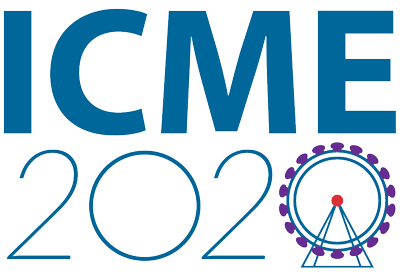Keynote presentation
Schedule: Wednesday, July 8; 13:30 – 14:30 London (BST time zone)
Abstract
The new “wave of AI”, more specifically machine learning and deep learning is currently revolutionizing applications in many domains. One of the early and impressive examples is of course the big leap we see in content analysis of images and image understanding. Machine learning and deep learning techniques are offering their power and potential in many domains from automated driving to health care, from industry 4.0 to regenerative energy. When we talk about AI the term Explainable AI is getting into focus as an important and relevant aspect of AI. A “black box” AI should be able to be understandable and readably by a human, initially such that the results of the AI can be under-stood by human experts.
Humans that are using and affected by AI are of course not experts in AI but everyday individuals in their work life and their personal private daily life. In a life in which AI methods and approaches will be influencing day-to-day actions, our decision-making powers, our control and our freedom, we need to design AI driven systems that are oriented along user, their needs and requirements. We must put them into the position to accept, to understand, to control, and potentially object to AI. We need to make AI first and foremost beneficial to all users. This keynote will look into the challenges of user-centered AI, what this means in different fields of applications and where we need new methods and tools to and put the user in lead in the decades of AI to come.
Prof. Dr. Susanne Boll is Professor of Media Informatics and Multimedia Systems in the Department of Computing Science at the University of Oldenburg, in Germany. She serves on the board of the OFFIS–Institute for Information Technology, in Oldenburg. Prof. Dr. Boll earned a doctorate with distinction from the Technical University of Vienna, Austria. She received her Diploma in Computer Science with distinction in from the Technical University of Darmstadt, Germany in 1996.
Her research field lies at the intersection of human computer interaction and interactive multimedia in which she has an excellent scientific track record. Her scientific results have been published in competitive peer-reviewed international conferences, such as Multimedia, CHI, and ICME as well as internationally recognized journals. She is a highly active member of the scientific community; she has been a reviewer for many international conference and journals and has co-organized and co-chaired many scientific events in the field.
Her research passion is developing interactive technology for people, joining novel innovative technology development with user needs and social acceptance in the center of her research. She is developing novel interaction technology that is shaped toward as respectful and beneficial cooperation of human and technology in a future more and more automated world. Her scientific research projects have a strong connection to industry partners and application partners and addresses highly relevant challenges in the applications field of automation in transportation systems, in interactive health care technologies, and industry 4.0.


